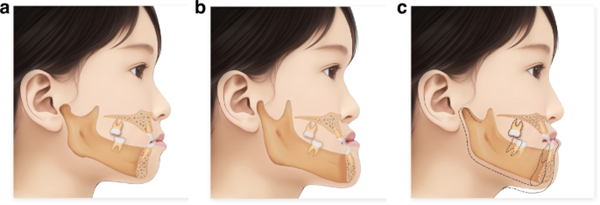Have you ever thought about how your upper and lower teeth align when you bite down? This alignment — or misalignment — can reveal more than you think. The way your teeth align affects not just your smile but also your overall health. This condition, known as malocclusion, refers to a poor bite or misalignment of the teeth and jaws.

Many people live with malocclusion without realizing its impact. However, dentists and specialists like an orthodontist in Tucker GA can identify early signs during routine checkups. In many cases, treating the bite can reduce pain, prevent future dental issues, and even improve breathing or speech.
Let’s take a closer look at what your bite says about your health — and why understanding malocclusion matters.
What Is Malocclusion?
Malocclusion simply means that your teeth don’t align properly when you close your mouth. Ideally, the upper teeth should sit slightly over the lower teeth, and the molars should fit together comfortably.
There are several types of malocclusion, including:
• Overbite: This refers to a condition where the upper teeth significantly overlap the lower teeth.
• Underbite: This happens when the lower teeth extend beyond the upper front teeth.
• Crossbite: This occurs when some upper teeth are located inside the lower teeth.
• Open bite: This is when there is no contact between the upper and lower teeth at all.
Each type can lead to different challenges if not corrected.
Why Does Malocclusion Happen?
Malocclusion can occur for multiple reasons, such as:
• Hereditary factors or family history
• Thumb-sucking that extends beyond early childhood
• Long-term use of bottles or pacifiers
• The presence of missing or additional teeth
• Injuries affecting the jaw or facial region
• Poor oral hygiene or the early loss of baby teeth
Sometimes, it’s simply a result of how your teeth naturally grow in. Whatever the cause, early detection makes it easier to manage.
Signs You May Have a Bite Problem
Many people live with bite issues and don’t know it. Here are a few signs that may suggest malocclusion:
a) Frequent jaw pain or stiffness
b) Difficulty chewing food properly
c) Teeth grinding, especially at night
d) Speech difficulties
e) Clicking or popping sounds when opening the mouth
f) Uneven wear on teeth
g) Frequent headaches or neck pain
If you notice any of these symptoms, it’s a good idea to consult with a dental professional.
How Malocclusion Affects Your Overall Health
You might think a bad bite only affects your mouth, but it can impact your whole body. Here’s how:
1. Jaw Pain and TMJ Disorders
When your bite is off, your jaw joints (called the temporomandibular joints) have to work harder to bring your teeth together. This can lead to chronic jaw pain or TMJ disorders, causing headaches, soreness, and difficulty opening your mouth.
2. Worn or Broken Teeth
Teeth that don’t align properly often hit each other unevenly. Over time, this can lead to chipped, cracked, or worn-down teeth, increasing your need for fillings, crowns, or extractions.
3. Digestive Issues
Proper chewing is the first step in digestion. If your bite prevents you from breaking down food effectively, it may lead to stomach discomfort or poor digestion over time.
4. Sleep and Breathing Problems
In some cases, a misaligned jaw can narrow the airway. This may increase the risk of snoring or obstructive sleep apnea, which can disturb sleep and lower your energy during the day.
5. Speech Challenges
The way your teeth and jaws are positioned affects how your tongue moves when you speak. Certain bite problems can lead to lisping, slurred words, or difficulty with pronunciation.
How Orthodontics Can Help
Fortunately, many bite issues can be corrected with the help of orthodontic care. Treatments vary depending on age, severity, and individual needs. Options include:
a) Braces (metal or ceramic)
b) Clear aligners like Invisalign
c) Palate expanders
d) Jaw surgery (for severe cases)
e) Retainers after treatment
Early intervention is often more effective, especially in children or teens. But adults can also benefit from orthodontic solutions.
When to See an Orthodontist
If you suspect something is wrong with your bite, don’t wait. Book a consultation with a trusted orthodontic provider. They will perform a detailed examination, possibly including X-rays and digital scans, to evaluate your bite and recommend the best course of action.
Even if you're not in pain, correcting malocclusion early can prevent more serious problems down the road. Improved oral health, better comfort, and a confident smile are all possible with the right care.
Conclusion
Your bite plays a bigger role in your health than you might imagine. From jaw pain and digestion to sleep and speech, malocclusion affects more than just how your teeth look.
If you live in or near Georgia and think your bite may need attention, visiting an orthodontist in Tucker GA can help you take the first step toward a healthier mouth and a better quality of life.
Understanding your bite isn't just about having a pretty smile — it's about protecting your long-term health and well-being. Start by asking the right questions and getting a professional opinion. Your future smile will thank you.